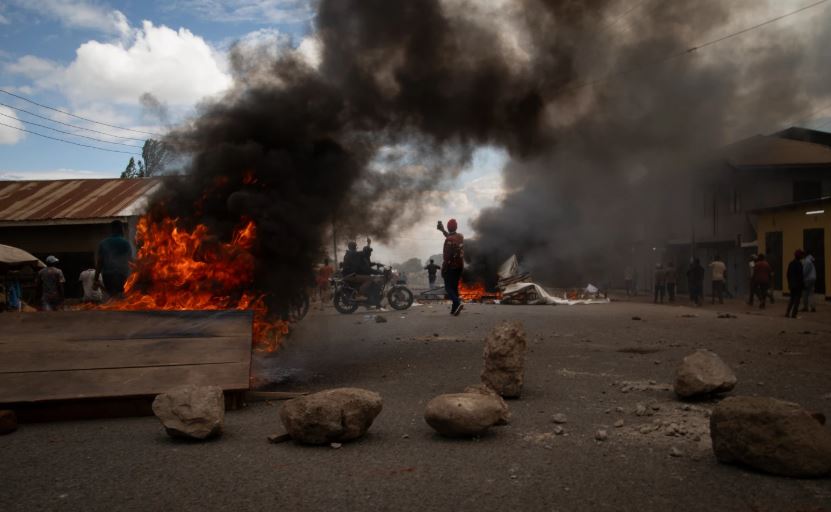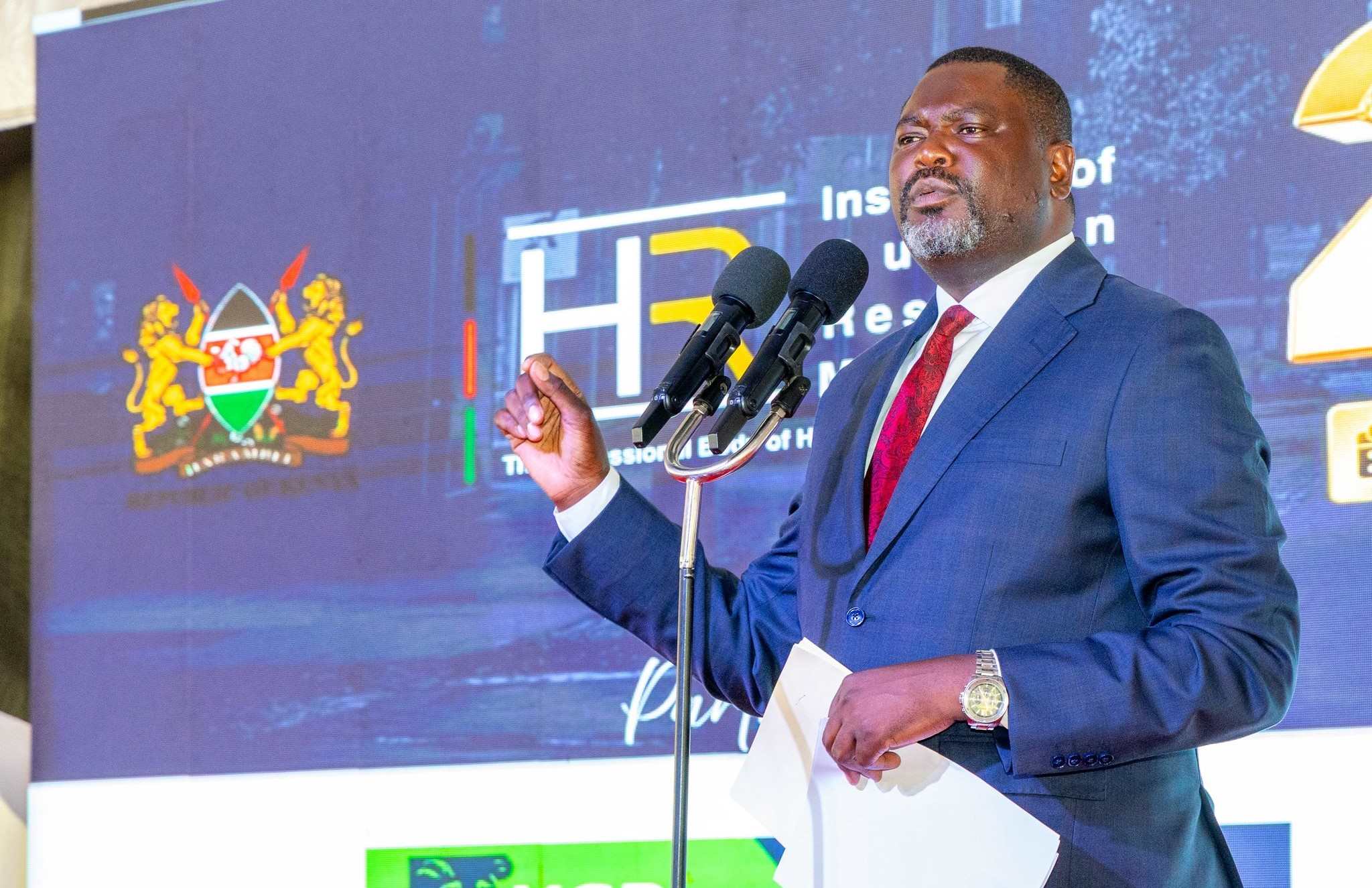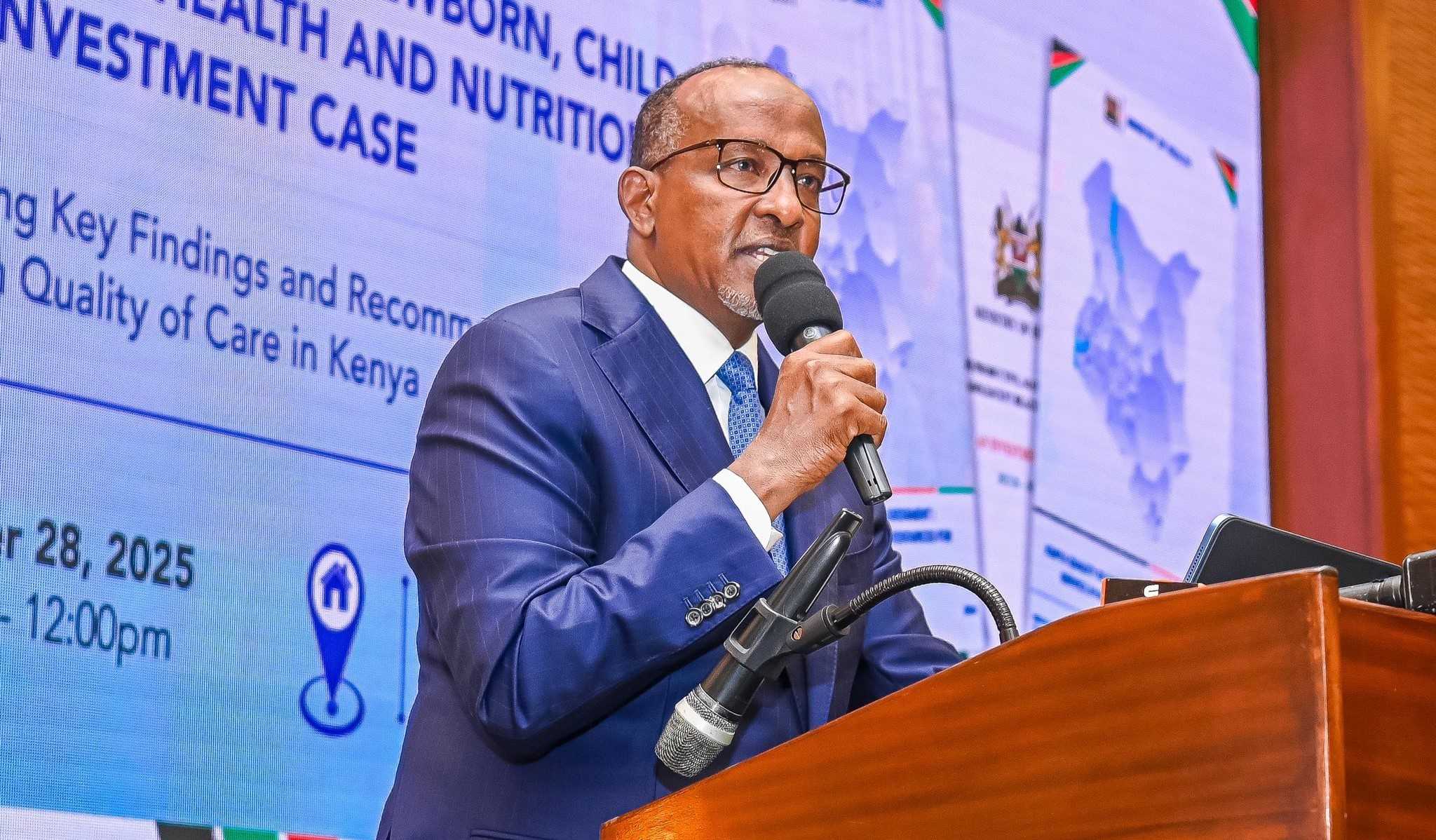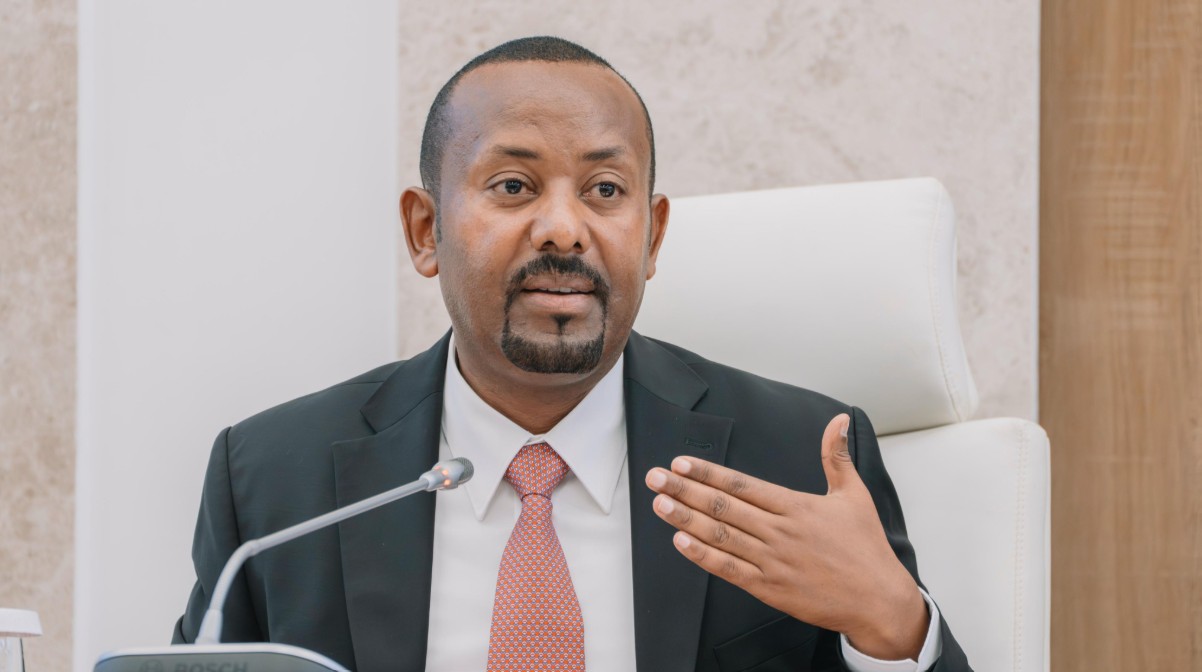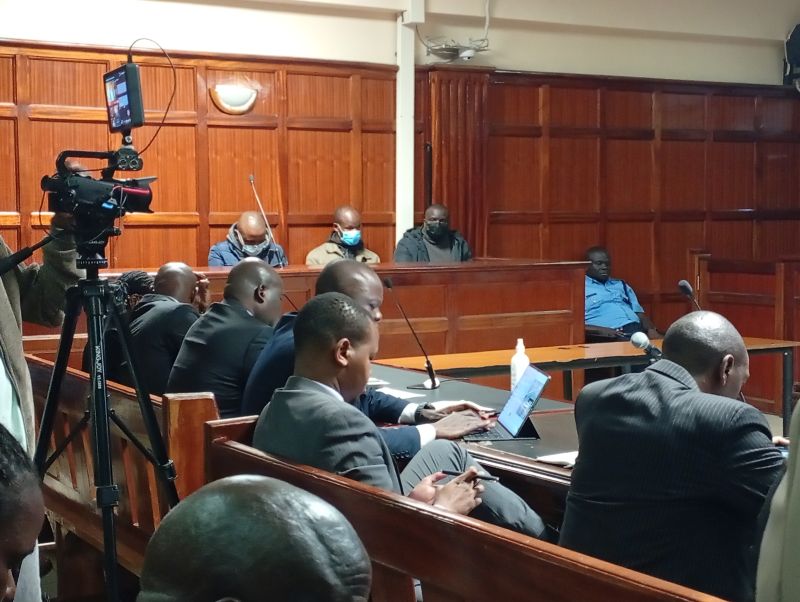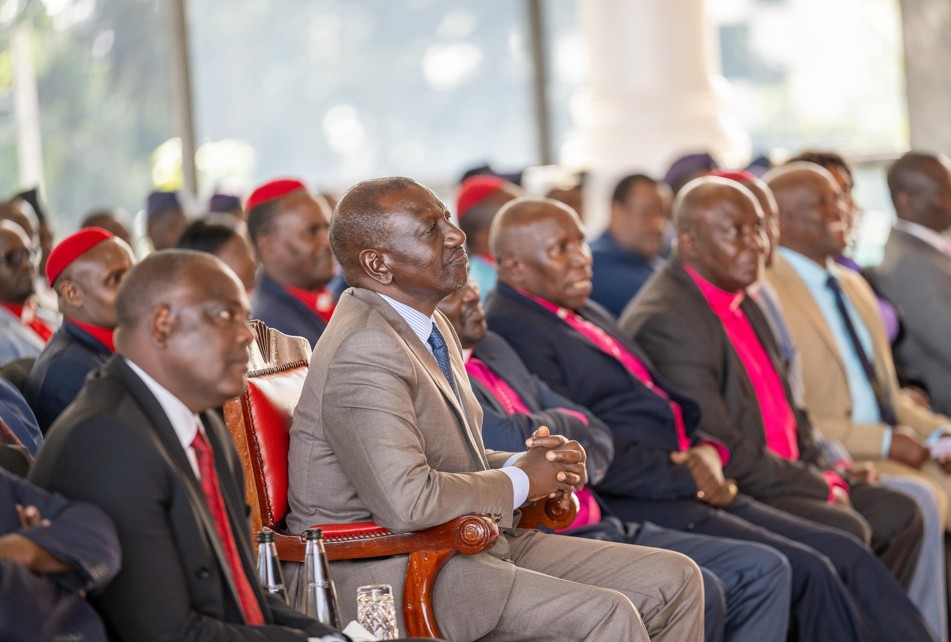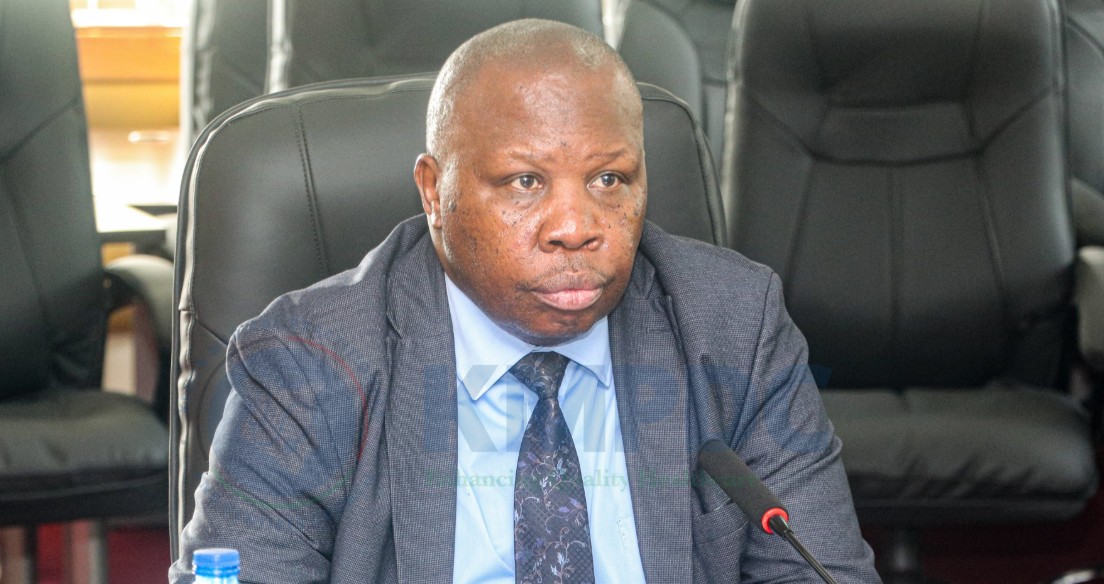Covid-19 fraud mastermind Mukhtar Shariff sentenced to 17 years in prison

The sentencing marks one of the harshest penalties handed down in connection with the $250 million "Feeding Our Future" fraud case.
Mukhtar Mohamed Shariff, one of the principal organisers of the largest COVID-19 pandemic fraud scheme in U.S. history, was sentenced to 17-and-a-half years in prison on Friday.
The sentencing marks one of the harshest penalties handed down in connection with the $250 million "Feeding Our Future" fraud case.
More To Read
- Study finds no link between Covid-19 vaccines and birth defects in newborns
- MPs fault procurement authority for weak laws on COVID-19 tenders
- Kenyan man charged in US for laundering Sh5.1 billion in COVID-19 relief fraud
- Kenya backs IGAD's initiative to boost pandemic preparedness
- Africa: A tentative start in mass vaccine production
- AI chatbots can boost public health in Africa - why language inclusion matters
Funds intended to provide meals for underprivileged children were diverted instead to finance luxury cars, real estate acquisitions, and overseas investments in countries such as Ethiopia and Somalia.
The sentencing hearing, held at the U.S. District Court in Minnesota and presided over by Judge Nancy E. Brasel, followed Mukhtar's conviction in June 2024.
A seven-week trial concluded with Mukhtar being found guilty on four charges: conspiracy to commit wire fraud, wire fraud, conspiracy to commit money laundering, and money laundering.
Mukhtar, the CEO of Afrique Hospitality Group, apologised during the hearing.
"To know that my actions may have tarnished that image and even fueled negative perceptions of that very community is a heavy burden to bear," Mukhtar said.
Despite his apology, Judge Brasel remained unmoved. She emphasized the impact of Shariff's crimes during the pandemic, stating, "When the world was at its most vulnerable, you were not a helper; you were a thief."
Mukhtar was sentenced to 210 months in prison, which includes three years of supervised release. The court also ordered him to pay $48 million in restitution for his role in the fraud. The sentencing hearing saw over 100 of Mukhtar's supporters in attendance, with many spilling into overflow areas. Some supporters broke down in tears as the sentence was announced, while others expressed their anger.
One individual shouted "No justice," prompting Judge Brasel to intervene and restore order in the courtroom.
Obstruction of justice
Prosecutors accused Mukhtar of obstructing justice during his trial. Allegations included his deletion of the Signal messaging app and his secret recordings of witness testimonies.
Prosecutors also claimed that Mukhtar was aware of attempts to tamper with the jury. Judge Brasel described these actions as demonstrating an "unprecedented disrespect for the law."
The fraud scheme exploited the Federal Child Nutrition Programme, which was temporarily adjusted during the COVID-19 pandemic to ensure children received meals during school closures. The programme, funded by the U.S. Department of Agriculture and administered through the Minnesota Department of Education, reimbursed sponsors based on the number of meals served.
Feeding Our Future, the nonprofit organisation at the centre of the case, was responsible for sponsoring meal distribution sites, including those run by Mukhtar.
Prosecutors revealed that Mukhtar and his accomplices falsified attendance records, meal counts, and invoices to claim reimbursements for meals that were never provided. In exchange for facilitating these fraudulent claims, Feeding Our Future allegedly received kickbacks from participants.
Assistant U.S. Attorney Joe Thompson provided details of Mukhtar's activities, stating that he submitted false claims for feeding up to 3,500 children daily at non-existent sites.
These claims allowed him to launder over $1.3 million through his business, Afrique Hospitality Group, and other shell companies.
Thompson described the scheme as "brazen," stating, "Their scheme involved fake meals, fake kids, fake invoices—but very real money."
He also dismissed defense arguments suggesting Mukhtar played a minor role in the fraud.
"He wasn't being a community leader—he was lining his own pockets," Thompson said while urging the court to impose the maximum 22-year sentence allowed under federal guidelines.
The Feeding Our Future fraud case has implicated 70 defendants and sent shockwaves through Minnesota. Acting U.S. Attorney Lisa Kirkpatrick described the case as a "brazen theft" of taxpayer funds intended for children in need.
Community leaders have voiced concerns about how the scandal could exacerbate stereotypes about the Somali-American community, a group that played a significant role in the case.
Top Stories Today
